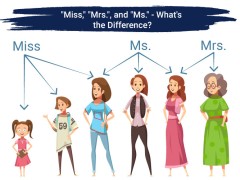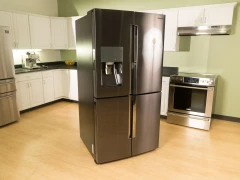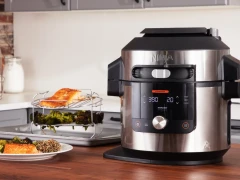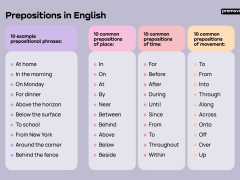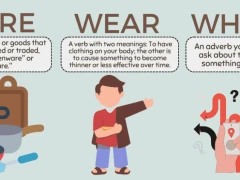Mrs. [ˈmisiz]夫人
kitchen [ˈkitʃin] n. 厨房
【派】kitchenware 厨房用具 kitchener 厨师
* * *
A: Lucy is working in the kitchen.
B: I'll go to help her.
A:露西正在厨房忙活呢。
B:我去帮帮她。
* * *
refrigerator [riˈfridʒəreitə] n. 电冰箱
【扩】fridge 冰箱
* * *
A: Are there any chopsticks?
B: Yes, they're in the drawer next to the refrigerator.
A:有没有筷子?
B:有,在冰箱旁的抽屉里。
* * *
right [rait] n. 右边
【派】right-handed 惯用右手的
【搭】turn right 向右拐
* * *
A: Excuse me. How can I get to the bus station?
B: Go straight ahead and then take the first turn on the right.
A:请问,去公共汽车站怎么走?
B:一直往前走,在第一个拐弯处往右拐。
* * *
electric [iˈlektrik] adj. 带电的,可通电的
left [left] n. 左边
* * *
A: The rest room is on our left. You can get water, tea or coffee at any time there as you like.
B: Thanks. I'll get familiar with the environment as soon as possible.
A:休息室在我们的左侧,随时有开水、茶和咖啡供应。
B:谢谢。我会尽快熟悉这儿的环境的。
* * *
cooker [ˈkukə] n. 炉子,炊具
* * *
A: Do you sell cookers here?
B: No, you need to go to the supermarket to get them.
A:你们这儿卖炊具吗?
B:不卖,你得到超市去买。
* * *
middle [ˈmidl] n. 中间
【扩】center 中心
【搭】in the middle 在中间
middle age 中年
Middle Age 中世纪
* * *
A: There is a fountain in the middle of the square.
B: Can you take me there to have a look?
A:这个广场中间有个喷泉。
B:你能带我去看看吗?
* * *
of [əv, ə, ɔv] prep. (属于)……的
room [ruːm] n. 房间
* * *
A: I'd like to book a room for next Saturday.
B: OK. I think we have some available.
A:我想订个房间,时间是下周六。
B:好的,我想我们还有些空房。
* * *
cup [kʌp] n. 杯子
* * *
A: Can I get you a cup of coffee?
B: No, thanks. I can't have anything more.
A:要不要我给你拿杯咖啡?
B:不用了,谢谢。我什么都喝不下了。
Lesson 26 Where is it?它在哪里?
where [wɛə] adv. 在哪里
* * *
A: Where would you like to go?
B: Please take me to the zoo.
A:你想去哪儿?
B:请带我去动物园。
* * *
in [in] prep. 在……里
【派】into 入 inside 在……里面
【反】out 在……外
【搭】in doubt 怀疑 in hurry 匆忙地
in danger 处于危险之中
in rage 在愤怒之中
* * *
A: Is the blanket in this bag?
B: Oh, no. I forgot to take it with us.
A:毯子在这个包里吗?
B:哦,不。我忘记带了。
noun [集合/集体]夫人;太太(等于 Mistress) - Mrs. Bierce wears thick bifocal lenses.
noun [专属名词]厨房;一套厨具;<非正式>管弦乐队中的打击乐器组;(语言)不标准的,俚俗的 - Her kitchen was kept immaculate.
noun [专属名词]冰箱,冷藏库 - He foraged in the refrigerator for munchies.
adjective [原级]符合道德的,正当的;正确的,真实的;(人、物)合适的,般配的;(意见,判断)对的;右边的,右侧的;(状态或情况)健康的,正常的;<英,非正式> 十足的,真正的(用于强调某人或某物多么糟糕);正面的,外面的;时尚的,上流社会的;(人或政党)支持保守观点的,右翼的 - If you do something in the right way or in the right place, you do it as or where it should be done or was planned to be done.
verb [vt. 及物动词]纠正,矫正;补救,扭转;把(尤指小船)扶正,使直立 - If you right a wrong, you do something to make up for a mistake or something bad that you did in the past.
noun [抽象名词]正当,公正;正当的要求,权利;版权,发行权(rights);右边,右方(the right);右拐,右转弯;右边的路(或入口);(足球等运动)右外场;部队的右翼;右翼组织,右派政党(the right/the Right);右翼人士的立场,右翼立场(the right);右手拳 - Your rights are what you are morally or legally entitled to do or to have. (
adverb [方式副词](地方、位置或时间)正好,就在;直接地,径直地;一直地,完全地;<非正式>立即,毫不耽搁;正确地,确切地;<非正式>顺利,正常;在右面,向右边;(政治上)右倾地;<美>用右手地;彻底地,十足地 - Right is also an adverb.
interjection [怀疑]好的,对(用于表示明白或同意某人的话);好(用于引起注意);对吗(用于确认自己说的话是否正确);(表示不相信或不同意)是吗,好哇;对不对,懂吗(用于确认对方是否在听并明白你说的话) - You can use right to check whether what you have just said is correct.
right 做副词时强调后边的形容词、副词、介词短语,不强调动词,可用 just 来替换Right here. 就在这儿
- “Right here waiting for you” 《在此等候》
- I found my lost watch right in the graden. 我就在花园里找到了我丢失的手表
- Education is a right, not a privilege. 教育是一种权利,而不是特权。
adjective [原级]电的;令人激动的;电子扩音的 - An electric current, voltage, or charge is one that is produced by electricity.
noun [专属名词]电路系统;电气交通工具 - The electric will be off tomorrow.
adjective [原级]左边的;剩余的;左派的,左翼的 - Is there any gin left?
noun [抽象名词]左侧 - Go back to the last fork in the road and take a left.
verb [vi. 不及物动词]离开(某人或某处);抛弃,丢弃;不立刻做(leave 的过去式和过去分词) - Left is the past tense and past participle of leave. (leave)
noun [专属名词]<英>炊具,锅,厨灶;<英,非正式>适宜煮食而不宜生吃的水果(尤指某种苹果) - I'm looking for a cooker today.
noun [专属名词]厨师,主厨 - Michael is a professionally-trained chef.
verb [vi. 不及物动词]<非正式>当厨师 - Bruce graduated to chef at the Bear Hotel.
noun [专属名词]厨师,炊事员 - They had a butler, a cook, and a maid.
verb [vt. 及物动词]煮,烧;烹饪,烹调;<非正式>发生,计划中;<美,非正式>干得起劲,干得好;<非正式>篡改,伪造 - Where did you learn to cook?
preposition [方式和原因]属于;…的;…的一部分;住在(某地);关于;由…组成的;因为;(表示人或事的时空位置)在,当 - The average age of the women interviewed was only 21.5.
noun [具体名词]房间,室;客房;<英,旧>(租用的)住所,寓所(rooms);空间,地方;机会, 余地;房间里所有的人 - A minute later he excused himself and left the room.
verb [vt. 及物动词]<美>租房,合住; <美>让……同住 - I had roomed with him in New Haven when we were both at Yale Law School.
noun [专属名词]【名】 (Room)(英)鲁姆,(俄)罗姆(人名) - The intensity of the work left little room for personal grief or anxiety.
noun [具体名词]杯子;一杯(的量);杯(烹饪的计量单位),量杯(金属或塑料量器);优胜杯,奖杯;杯状物;(胸罩的)罩杯;(含酒精的)混合饮料;<美>(高尔夫球的)球洞;<美>(男子运动时穿的)护裆 - Gradually add 1 cup of milk, stirring until the liquid is absorbed.
verb [vt. 及物动词](用手)做成杯状;窝起手掌托住;<旧>为…拔火罐(或做吸杯治疗) - He cupped his hands around his mouth and called out for Diane.
adverb [地点副词]在哪里 - Where did you meet him?
pronoun [指示代词]哪里 - The area where the explosion occurred was closed off by police.
conjunction [并列连词]在…的地方 - People began looking across to see where the noise was coming from.
preposition [位置和方向]在…内;进…里;在…期间;在…以后;穿着;在…状态中;在…方面;包含在…中;从事…;用…语言,以…媒介;以…调;在(活动)过程中;在…岁数;当…时;(引出具某种品质的人的名字);占…;在…之中(用于较大和较小数字之间);以…的数量;带…颜色的;以…方式;具有…特性;按照(表示方式) - He was in his car.
adverb [方式副词]进入;在里头;到达;当选;涨潮;在屋里;在车站;收到;递交,送到;填写,着色;朝里,向中间;击球;(球)落在界内;(服装等)时髦 - My roommate was in at the time.
adjective [原级]在里面的;时髦的;(用球)界内的 - A few years ago jogging was the in thing.
noun [抽象名词]执政者;门路 - I'm lucky in that I've got four sisters.
